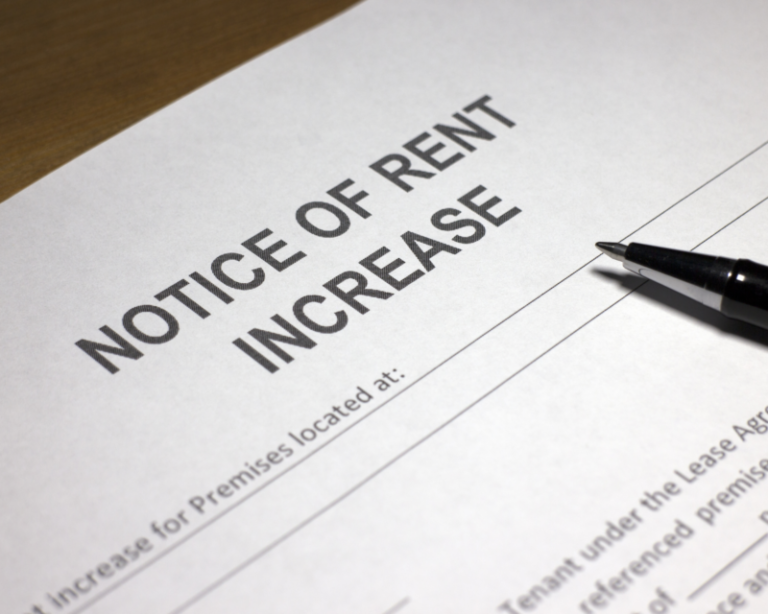Are you a property manager looking to enhance your skills and advance your career in the rental homes industry? If so, obtaining a property management certification could be the key to unlocking new opportunities and increasing your marketability. In this comprehensive guide, we will explore the benefits of property management certification, the difference between certification and a real estate license, and whether certification is necessary for success in the field of property management.
Table of Contents
- What is Property Management Certification?
- Do I Need to be a Certified Property Manager?
- The Difference Between Property Management Certification and a Real Estate License
- Benefits of Property Management Certification
- Major Property Management Organizations and Certifications
- Essential Certifications for Property Managers
- Additional Certifications to Boost Your Career
- Company Certifications: Elevating Your Reputation
- Continuing Education Credentials for Property Managers
- Conclusion
1. What is Property Management Certification?
Property management certification is a professional designation that validates a property manager’s knowledge, skills, and expertise in the field. It is typically offered by property management organizations and real estate associations, providing property managers with the opportunity to gain recognition and demonstrate their commitment to excellence in their profession.
Obtaining a property management certification involves completing a series of courses or exams that cover various aspects of property management, such as legal regulations, financial analysis, marketing strategies, tenant relations, and property maintenance. These certifications are designed to equip property managers with the necessary skills and knowledge to effectively manage rental properties, regardless of the asset class or property type.

How To Get Your Real Estate License In NC
Starting a career in real estate can be a lucrative and fulfilling opportunity. Whether you are looking for a change in career or seeking to break into the industry, obtaining a real estate license is the first step.
2. Do I Need to be a Certified Property Manager?
While certification is not a legal requirement for practicing property management in most states, it is highly recommended for several reasons. First and foremost, obtaining a property management certification sets you apart from the competition and demonstrates your commitment to professionalism and continuous learning. It provides credibility to potential clients, employers, and tenants, instilling trust in your abilities as a property manager.
Additionally, property management certification equips you with valuable knowledge and skills that can enhance your performance and streamline your operations. It covers a wide range of topics, including legal responsibilities, ethical practices, financial analysis, marketing strategies, and tenant relations, which are crucial for effective property management. By investing in your professional development through certification, you can position yourself as a trusted expert in the industry and attract more clients and job opportunities.
3. The Difference Between Property Management Certification and a Real Estate License
While property management certification and a real estate license may seem similar, they serve different purposes and require different qualifications.
A real estate license is a legal requirement for individuals involved in real estate transactions, including buying, selling, leasing, and managing properties on behalf of others. It is issued by the state and involves completing specific coursework, passing an exam, and meeting other state-specific requirements. A real estate license allows property managers to legally handle rent, negotiate leases, and list properties.
On the other hand, property management certification is not a legal requirement in most markets but is a voluntary professional designation that focuses specifically on property management skills and knowledge. It is typically offered by property management organizations and real estate associations and involves completing a series of courses or exams related to property management. Certification signifies a higher level of expertise in property management and provides additional credibility to property managers.
In summary, a real estate license is a legal requirement for conducting real estate transactions, while property management certification is a professional designation that demonstrates specialized knowledge and skills in property management.

How To Get Your Real Estate License In SC
Many aspiring real estate agents view property management as an opportunity to gain a solid understanding of the housing market, acquire a diverse range of experience, and earn additional income.
4. Benefits of Property Management Certification
Obtaining a property management certification offers numerous benefits for property managers, including:
a. Enhanced Professionalism and Credibility
Property management certification demonstrates your commitment to professionalism and continuous learning in the field. It sets you apart from competitors and instills trust in clients, employers, and tenants. By showcasing your certification, you can showcase your expertise and validate your skills, making you a more desirable candidate for job opportunities and attracting more clients.
b. Expanded Knowledge and Skills
Property management certification provides comprehensive training in various aspects of property management, including legal regulations, financial analysis, marketing strategies, tenant relations, and property maintenance. By completing certification courses or exams, you can expand your knowledge base and acquire new skills that can enhance your performance as a property manager. This can lead to more efficient operations, improved tenant satisfaction, and increased profitability.
c. Networking and Professional Development Opportunities
Property management certification often comes with membership in professional organizations or associations, providing access to networking events, industry conferences, and educational resources. These opportunities allow you to connect with other property management professionals, exchange ideas, and stay up-to-date with the latest industry trends and best practices. Networking and professional development can lead to valuable connections, mentorship opportunities, and career advancement.
d. Competitive Advantage
In a competitive industry, property management certification can give you a significant edge over other professionals. Clients and employers are more likely to trust and hire certified property managers due to their demonstrated expertise and commitment to excellence. Certification can open doors to new job opportunities, higher salaries, and increased business prospects, allowing you to stand out in the market.
5. Major Property Management Organizations and Certifications
Several property management organizations and real estate associations offer certifications for property managers. These certifications are recognized and respected within the industry, providing property managers with a comprehensive and reputable credentials. Let’s explore some of the major organizations and their corresponding certifications:
a. The Institute of Real Estate Management (IREM)
IREM is a globally recognized organization that offers the Certified Property Manager (CPM) designation. The CPM certification is considered the gold standard in property management and signifies a high level of expertise and professionalism. To obtain the CPM designation, property managers must meet specific experience requirements, complete required courses, and pass rigorous exams covering various aspects of property management.
b. The National Association of Residential Property Managers (NARPM)
NARPM is an international association that specializes in residential property management. They offer the Residential Management Professional (RMP) designation, which validates a property manager’s knowledge and skills in residential property management. The RMP certification requires the completion of specific courses and the demonstration of practical experience in managing residential properties.
c. The National Apartment Association (NAA)
NAA is a prominent association for apartment owners and operators. They offer the Certified Apartment Manager (CAM) designation, which focuses on the unique challenges and responsibilities of managing apartment communities. The CAM certification requires the completion of specific courses and the demonstration of practical experience in apartment management.
d. The National Association of Realtors (NAR)
NAR is a widely recognized association for real estate professionals. While NAR does not offer a specific property management certification, they provide valuable resources and educational opportunities for property managers. Realtors who are property managers can benefit from NAR’s training programs, professional development resources, and networking events.
These are just a few examples of the major property management organizations and the certifications they offer. Each certification has its own requirements and benefits, so it’s essential to research and choose the one that aligns with your career goals and interests.

Earn Income By Managing Properties
Property managers play an integral role in the real estate industry and can be a great source of income for individuals and businesses alike.
6. Essential Certifications for Property Managers
While there are numerous certifications available for property managers, certain certifications are considered essential for professionals in the field. These certifications provide a solid foundation of knowledge and skills necessary for successful property management. Let’s explore some of the essential certifications for property managers:
a. Certified Property Manager (CPM)
The Certified Property Manager (CPM) designation, offered by IREM, is widely recognized as the premier certification for property managers. The CPM certification signifies a high level of expertise and professionalism in property management. To obtain the CPM designation, property managers must meet specific experience requirements, complete required courses, and pass rigorous exams covering various aspects of property management. The CPM designation demonstrates a commitment to excellence and positions property managers as trusted experts in the industry.
b. Accredited Residential Manager (ARM)
The Accredited Residential Manager (ARM) certification, also offered by IREM, is designed for property managers specializing in residential properties. The ARM certification provides in-depth training on the unique challenges and responsibilities of managing residential properties. To obtain the ARM certification, property managers must meet specific experience requirements, complete required courses, and pass exams focusing on residential property management.
c. Residential Management Professional (RMP)
The Residential Management Professional (RMP) designation, offered by NARPM, is specifically tailored for property managers who specialize in residential rental properties. The RMP certification validates a property manager’s knowledge and skills in residential property management. To obtain the RMP certification, property managers must meet specific experience requirements, complete required courses, and pass exams focusing on residential property management.
These three certifications are highly regarded in the property management industry and provide a solid foundation of knowledge and skills for professionals in the field. Obtaining one or more of these certifications can significantly enhance your career prospects and demonstrate your commitment to excellence in property management.
7. Additional Certifications to Boost Your Career
In addition to the essential certifications mentioned above, there are several other certifications that can further enhance your skills and boost your career in property management. These certifications focus on specific areas or niche markets within property management, allowing you to specialize and differentiate yourself from the competition. Let’s explore some of the additional certifications available:
a. Certified Apartment Manager (CAM)
The Certified Apartment Manager (CAM) certification, offered by NAA, is specifically designed for professionals managing apartment communities. The CAM certification provides specialized training on the unique challenges and responsibilities of apartment management. To obtain the CAM certification, property managers must meet specific experience requirements, complete required courses, and pass exams focusing on apartment management.
b. Certified Manager of Community Associations (CMCA)
The Certified Manager of Community Associations (CMCA) certification, offered by CAMICB, is designed for professionals managing community associations. The CMCA certification validates a property manager’s knowledge and skills in managing community associations, including homeowner associations, condominiums, and cooperatives. To obtain the CMCA certification, property managers must meet specific experience requirements, complete required coursework, and pass a comprehensive exam.
c. Certified Support Specialist (CSS)
The Certified Support Specialist (CSS) certification, offered by NARPM, is designed for administrative professionals working in property management offices. The CSS certification provides industry-specific knowledge and skills to support property managers effectively. To obtain the CSS certification, administrative professionals must complete required courses and demonstrate proficiency in property management administrative tasks.
These additional certifications allow property managers to specialize in specific areas of property management, such as apartment management or community association management. By obtaining these certifications, you can position yourself as an expert in niche markets and attract clients or job opportunities within those sectors.

Get a Job in Property Management
Its not always required that you have a real estate license, be a BIC (broker in charge), or complete any certification. There are many routes you can take to join the property management business.
8. Company Certifications: Elevating Your Reputation
In addition to individual certifications, there are also company certifications available that can elevate the reputation of your entire property management team. These certifications demonstrate your company’s commitment to excellence, professionalism, and adherence to industry standards. Let’s explore two notable company certifications:
a. Certified Residential Management Company (CRMC)
The Certified Residential Management Company (CRMC) designation, offered by NARPM, signifies that your property management company meets rigorous standards of professionalism and excellence. To obtain the CRMC designation, your company must undergo a comprehensive onsite audit by NARPM and demonstrate proficiency in various aspects of property management. The CRMC certification differentiates your company from competitors and instills confidence in potential clients.
b. Accredited Management Organization (AMO)
The Accredited Management Organization (AMO) certification, offered by IREM, is a prestigious designation that recognizes property management companies for their exceptional performance and adherence to high professional standards. To obtain the AMO certification, your company must meet extensive requirements, including having an executive team member with a CPM designation, demonstrating financial stability, and implementing best practices in property management. The AMO certification showcases your company’s commitment to excellence and positions you as a leader in the industry.
Obtaining company certifications such as CRMC or AMO can enhance your company’s reputation, attract high-quality clients, and provide a competitive edge in the property management market. It demonstrates your company’s dedication to professionalism, best practices, and delivering exceptional service to clients.
9. Continuing Education Credentials for Property Managers
In addition to certifications, continuing education credentials can further enhance your knowledge and skills as a property manager. These credentials focus on specific areas of property management and provide ongoing education to keep you updated on industry trends and best practices. Let’s explore some of the continuing education credentials available:
a. Certificate for Apartment Maintenance Technician (CAMT)
The Certificate for Apartment Maintenance Technician (CAMT) credential, offered by NAA, focuses on the specialized skills required for maintenance professionals in the apartment industry. The CAMT credential provides training in cost-effective maintenance practices, safety protocols, and technical skills necessary for maintaining apartment communities.
b. Certified Apartment Leasing Professional (CALP)
The Certified Apartment Leasing Professional (CALP) credential, offered by NAA, focuses on the leasing skills required for professionals in the apartment industry. The CALP credential provides training in generating traffic, conducting leasing demonstrations, overcoming objections, and qualifying prospective residents.
c. Certified Apartment Supplier (CAS)
The Certified Apartment Supplier (CAS) credential, offered by NAA, is designed for salespeople and suppliers who work with the apartment industry. The CAS credential provides further knowledge of apartment community operations, allowing suppliers to better serve the needs of property managers and residents.
d. Independent Rental Owner Professional (IROP)
The Independent Rental Owner Professional (IROP) credential, offered by NAA, is designed for rental owners who personally hold and manage apartment properties. The IROP credential provides training in budget management, tax planning, preventative maintenance, energy efficiency, and resident qualification and retention.
e. Specialist in Housing Credit Management (SHCM)
The Specialist in Housing Credit Management (SHCM) credential, offered by NAA, focuses on the management of affordable housing properties under the Low-Income Housing Tax Credit (LIHTC) program. The SHCM credential provides comprehensive knowledge of LIHTC regulations, compliance requirements, and best practices for managing affordable housing properties.
f. Credential for Green Property Management (CGPM)
The Credential for Green Property Management (CGPM), offered by NAA, focuses on sustainable and environmentally friendly practices in property management. The CGPM credential provides training on green building principles, energy efficiency, water conservation, and other sustainability initiatives.
g. Certified Support Specialist (CSS)
The Certified Support Specialist (CSS) credential, offered by NARPM, is designed for administrative professionals working in property management offices. The CSS credential provides industry-specific knowledge and skills to support property managers effectively.
These continuing education credentials allow property managers to specialize in specific areas of property management and stay updated on industry trends and best practices. By obtaining these credentials, you can demonstrate your dedication to ongoing learning and position yourself as a well-rounded and knowledgeable professional in the field.
10. Conclusion
Property management certification is a valuable investment for property managers looking to enhance their skills, credibility, and career prospects. Whether you choose to pursue a recognized certification from organizations such as IREM, NARPM, or NAA, or opt for company-specific certifications, the benefits are numerous. Certification provides a competitive advantage, expanded knowledge and skills, networking opportunities, and increased marketability in the property management industry.
While property management certification is not a legal requirement in most states, it demonstrates your commitment to professionalism, continuous learning, and adherence to industry standards. By obtaining certifications such as the Certified Property Manager (CPM), Accredited Residential Manager (ARM), or Residential Management Professional (RMP), you can position yourself as a trusted expert in property management and attract more clients, job opportunities, and professional connections.
Investing in property management certification is an investment in your professional growth and long-term success. Stay informed, expand your skillset, and seize the opportunities that come with being a certified property manager in the dynamic and rewarding field of rental homes.












